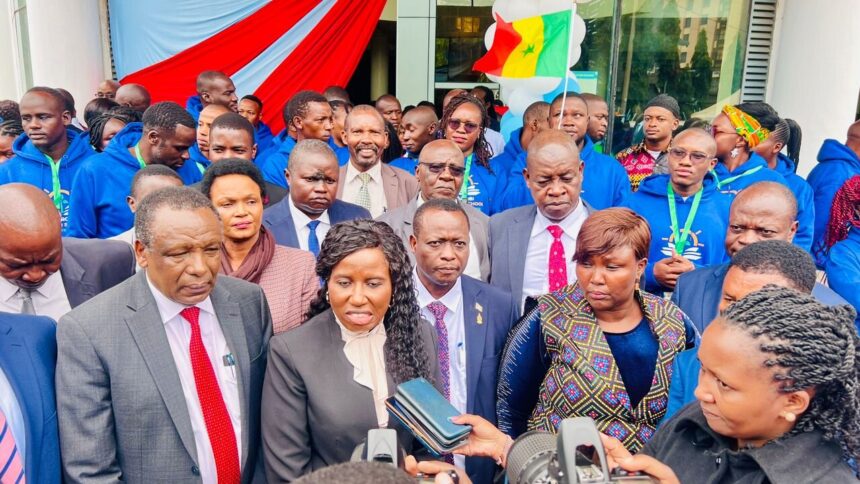Journalists and media houses in Africa have been urged to elevate their reporting efforts and strategically position the continent by advancing African narratives on climate change. This call to action was made by Pan African Climate Justice Alliance (PACJA) Executive Director Mithika Mwenda during the launch of the African Climate Change and Environmental Reporting (ACCER) Awards at Chuka University.
Speaking at the event, which also marked the closing ceremony of the Nairobi Summer School on Climate Justice, Mwenda emphasized the need for journalists to connect with the global discourse and compel African leaders to demand accountability for climate financing. He urged journalists to expose gaps in accountability and transparency to ensure that funds allocated for climate change adaptation reach those who need them most.
“The power of journalism lies in its ability to shape narratives and transform society. Through the ACCER Awards, we celebrate journalists who dare to ask hard questions and seek out hidden answers. By challenging journalists to explore these narratives, we aim to illuminate the realities that define how effective financing mechanisms should look like,” Mwenda said.
PACJA believes that journalism can play a crucial role in exposing the hypocrisy of developed countries in meeting their commitments, highlighting areas where Africa is shortchanged in access to climate finance, and identifying inefficiencies that constrain access.
“Journalism is a pivotal force in shaping policy and directing attention to where it is most needed. It compels policymakers, stakeholders, and the global community to re-evaluate their strategies and commitments to a more equitable distribution of resources. Let us continue to champion the stories that need to be told and support the journalists who tell them, fostering a world of equity and justice in climate action,” he added.
During the Nairobi Summer School on Climate Justice, journalists were trained to enhance their climate justice reporting across Africa, equipping them to become agents of accountability and equity in climate adaptation efforts. Since its inception in 2013, the ACCER Awards have grown into a cornerstone of motivating, sustaining, and rewarding excellence in environmental and climate journalism globally. The final awarding ceremony is expected to take place in Abidjan, Ivory Coast, during the Conference on Climate Change and Development in Africa, alongside the Africa Ministerial Conference on Environment.
Chuka University Vice Chancellor Prof. Henry Mutembei noted the event’s impact on young people, emphasizing their enhanced understanding of climate change and its local and global impacts. “We are excited to graduate summer school students who were hosted in this institution for two weeks. The team has been given instruments of power to negotiate climate justice globally through the integration of diverse thinking,” he said.
Martha Bekele, speaking on behalf of Development Initiatives, encouraged participants to push for advocacy in producing data and evidence in the fight for climate justice. She highlighted the importance of recognizing injustice in climate finance, global health, gender, and other climate-related issues. “I implore you to ignore naysayers and stand up for climate justice. You came here to challenge the global order. Fight for climate justice and ignite Africans to action and activism,” she said.
The two-week event brought together more than 300 participants from over 80 countries worldwide. Hadeera Ahmed, a participant from Egypt, shared her experience: “It was a great opportunity to meet people from different countries, exchange cultures, and learn what steps to take in climate action. We want to be part of the solution because our planet needs us. We want climate justice and will take action for it. It was a great opportunity to gain knowledge through the sessions related to climate justice and how we can implement it in our countries.”









